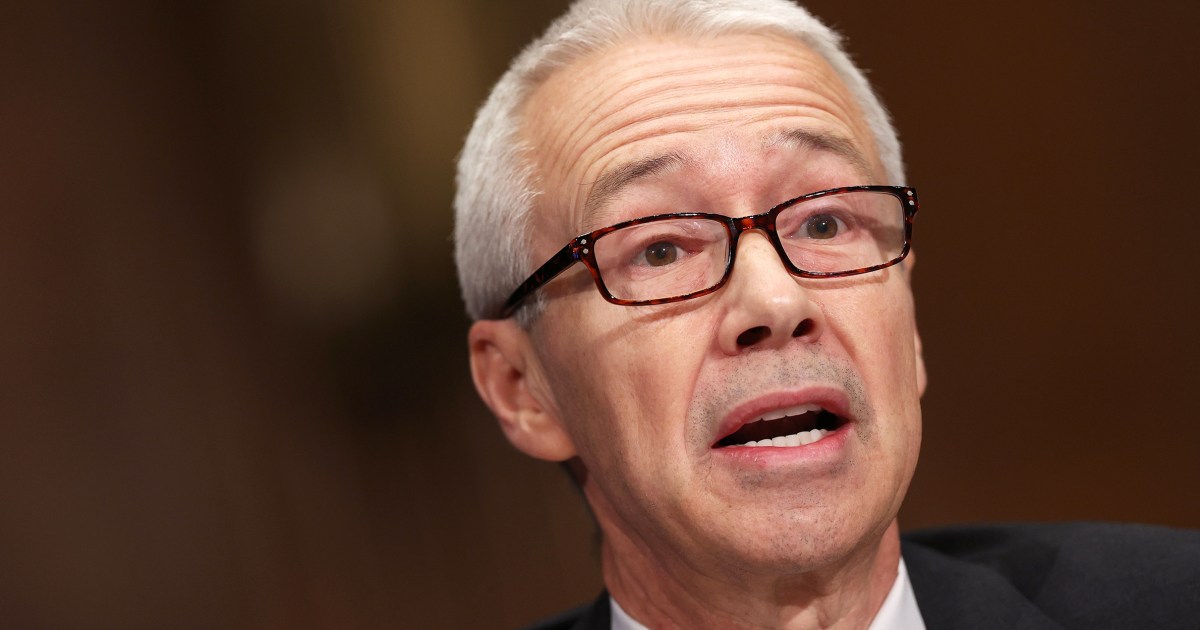The hearing came shortly after the Biden administration kicked off drug price negotiations for the 10 costliest medications for Medicare recipients.
All three drugmakers have filed lawsuits against the federal government to stop the negotiations, which are a provision in the Inflation Reduction Act.
Five of the 10 drugs up for negotiations — blood thinners Eliquis and Xarelto, diabetes drug Januvia, blood cancer drug Imbruvica and arthritis drug Stelara — are made by one of the three companies.
The yawning gap between the prices the three drugmakers charge in the U.S. versus other countries for the same drug was the reason three executives were called to testify, Sanders said.
According to Sanders:
- Bristol Myers Squibb charges an annual list price of about $7,100 for Eliquis in the U.S., compared to around $900 in Canada and about $650 in France.
- J&J’s Stelara is $79,000 in the U.S., but $16,000 in the United Kingdom.
- Merck’s Januvia is around $6,000 in the U.S. but $900 in Canada and $200 in France.
The CEOs defended the costs, saying those high prices are based on the “value” the medications give patients.
They also noted that the higher prices mean U.S. patients often get access to the medications years before people in other countries.
“This is in stark contrast to many systems outside the United States, which while they may deliver lower prices, carry an often overlooked trade off that patients often wait longer for new medicines,” Boerner, of Bristol Myers Squibb, said.
The executives also said that if the U.S. cuts the prices of their medications, they will be unable to invest in developing new medicines.
“Future treatment breakthroughs hinge on what we do now,” Davis said.
Sanders countered that the companies spend more on executive compensation, stock buybacks and dividend payments to investors than on research and development.
The ranking member of the committee, Sen. Bill Cassidy, R-La., agreed with Sanders that drug prices are unreasonably high in the U.S. However, he also worried that aggressive policies that cut the price of drugs might discourage drugmakers from making investments in new medicines.
“Now we want to create incentive, but we want to be able to provide access; without access it’s as if the drug has never been invented,” he said.
The CEOs said that they supported lower out-of-pocket costs for consumers and pointed the finger at insurance companies and middlemen known as pharmacy benefit managers, which negotiate rebates with drug companies on behalf of insurance plans.
Sen. Maggie Hassan, D-N.H., was skeptical that the executives supported lowering drug costs, asking them why they were “actively trying to prevent generics from the market.”
Bristol Myers Squibb’s Eliquis, for example, was originally set to allow generic competition in 2019, but the drugmaker filed new patents that extended the drug’s exclusivity for several more years.
Boerner addressed that, telling Hassan, “We have allowed generic entry in 2028.”
“So we have two generics ready to go,” Hassan responded. “Your original patent also past expired, but you still are actively trying to prevent generics from coming to market.”


